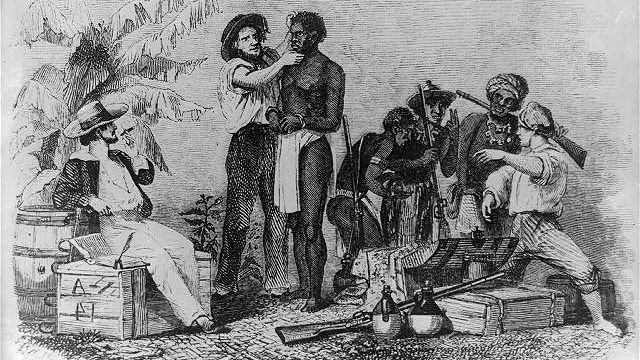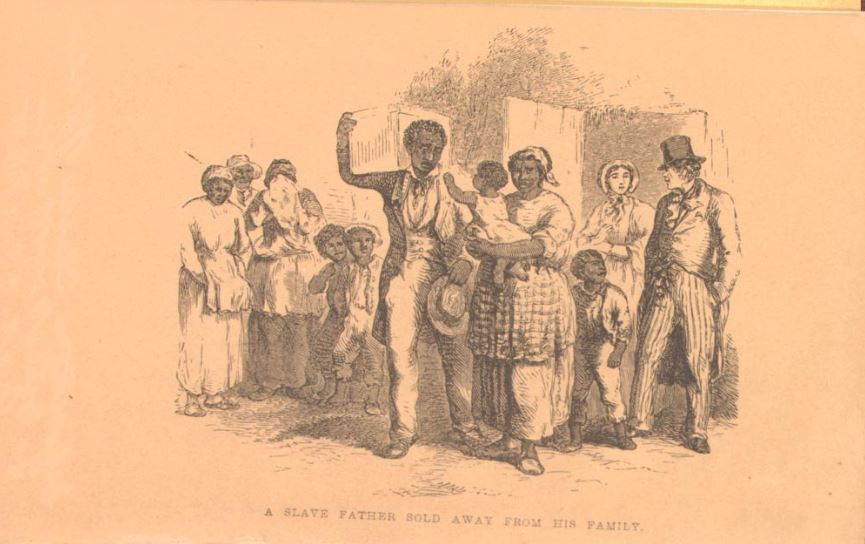Can We Have a Productive, Civil Conversation About Reparations in 2019?
Stephen Henderson, guests, and listeners discuss race and racism in the context of reparations — history, present, and future.

An African man being inspected for sale into slavery while a white man talks with African slave traders.
One of the big surprises of the early 2020 presidential campaign is the role that reparations has played. That’s the idea that America might owe the descendants of slaves and the survivors of four centuries of inequality something in remuneration.
Every Democratic candidate is being asked about the issue. And there are now specific bills in Congress that have been introduced to study the idea.
This issue is getting more mainstream attention than it has at any time in recent memory and it looks like it could really shape the political discussion over the next year.
On Detroit Today, Stephen Henderson, guests, and listeners discuss race and racism in the context of reparations — history, present, and future.
Eric Foner is the DeWitt Clinton Professor of History at Columbia University and author of “Reconstruction: America’s Unfinished Revolution.” He is one of the experts featured throughout the PBS series Reconstruction. He talks about the years immediately following the Civil War when there was a brief window of opportunity to take on structural racism, but which closed abruptly.
Cheryllyn Branche is the president of the GU272 Descendants Association, an organization working to connect the descendants of the 272 slaves sold by Jesuits in 1838 that benefited Georgetown University. She reacts to a recent vote by Georgetown students to pay for reparations for descendants of those slaves, like herself. The student plan would have all the school’s undergrads pay $27.20 each semester, which would generate $400,000 a year for a reconciliation fund that would benefit the descendants of the sold slaves.
Ken Woodley is a journalist and author of the book, “The Road to Healing.” Woodley was the editor for 24 years of the Farmville Herald in Prince Edward County, Virginia. When he started working went to work at the family-owned newspaper, he did not know its segregation-boosting history in the 1950s and 1960s. The paper was still owned by the same family, with the same publisher/editorial writer in place when he realized the paper’s history. Rather than leave, Woodley chose to spend his entire career there, lending his voice to racial healing and reconciliation. In 2003, he proposed and led the successful fight for a state-funded scholarship program for the casualties of county-wide local public school closings from 1959-1964.
Click on the audio player above to hear those conversations.
This first aired on Detroit Today with Stephen Henderson on April 17, 2019.

